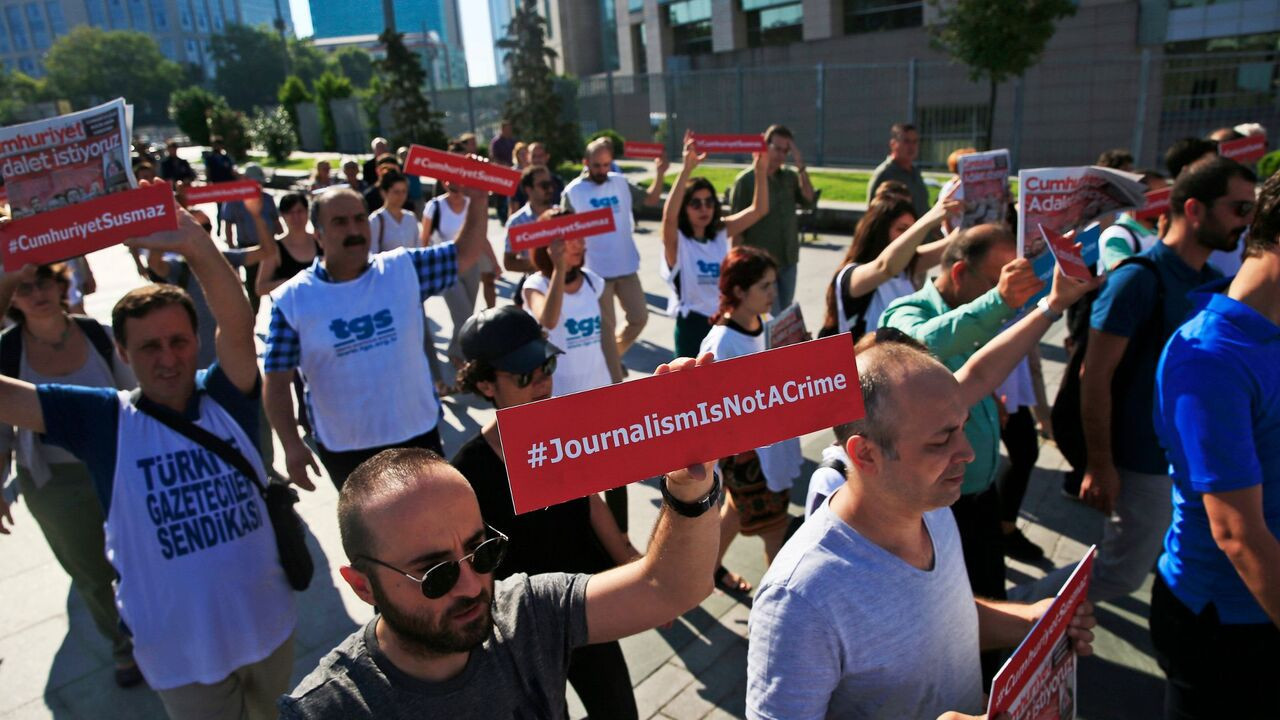Turkey’s ruling party drafts controversial legislation targeting ‘agents of influence’
Turkey's ruling AKP's leaked "anti-espionage" draft bill comprising of "vague terms" seemed to target organizations and individuals receiving foreign funds in particular. Opposition figures criticized the bill as a further attempt to curb press freedom and political dissent.
Gazete Duvar / Nergis Demirkaya
Turkey’s ruling Justice and Development Party (AKP) is taking steps to target so-called “agents of influence” to combat “novel forms of espionage activities,” a recently leaked draft proposal revealed.
This proposed legislation, which appears to target organizations receiving foreign funds specifically, follows the controversial "disinformation bill" enacted in late 2022, widely condemned for curbing press freedom and political dissent.
However, according to the AKP, new legislation was necessary to combat forms of espionage that were not covered by previous legislation.
They cited instances such as the case of Metin Gürcan, a retired soldier and politician, who was tried in the summer of 2023 for "acquiring classified information" but acquitted of "espionage."
Turkey’s current legal framework includes provisions for penalizing crimes and espionage against the state, including actions such as the destruction or disclosure of sensitive state information.
However, according to the draft proposal, this legal framework fell short and thus introduced the vague concept of so-called “other activities” that targeted the state’s security and interests.
Under this new "vague category" of crime, individuals engaging in activities aligned with the strategic interests of foreign states or organizations against Turkey’s security and political interests could face penalties.
This includes those who conduct or commission research on Turkey’s citizens, entities, or foreigners in Turkey and incorporates a wide variety of sectors, including transport, culture, economy, finance, defense, cybersecurity, public security, and public health.
Meanwhile, prosecution under the new law can only be authorized after approval from the Minister of Justice.
These ambiguous terms have raised alarm bells, with organizations and opposition figures warning against the potential ramifications of the proposed legislation.
“Your aim is never to catch a spy! It is to silence journalists, critical minds, the opposition, and those who are not like you,’’ said Eskişehir Deputy Utku Çakırözer from the main opposition Republican People’s Party (CHP), during a speech in Parliament addressing the draft bill.
“What you want to do is nothing more than a witch hunt. Cancel this dangerous regulation immediately.”
However, according to Nationalist Movement Party (MHP) deputy chair of legal and electoral affairs Feti Yıldız, people badmouthing the new legislation were already likely showing signs of being "agents of influence."
“We do not expect any ‘grant-grabbing’ person or organization that receives grants from foreign countries, acts as an agent of influence in return, and pursues the interests of foreign powers to support this bill and make statements in line with the national interest,” Yıldız, whose party has been in coalition with the AKP since 2018, stated on his social media account.
Ülke dışından hibe alan ,karşılığında etki ajanlığı yapan ,yabancı bir gücün çıkarlarını gözeten her türlü “hibe yiyici” kişi ve kurumun bu yasa teklifini desteklemesini milli menfaatlere uygun açıklama yapmasını zaten beklemiyoruz.
— Feti Yıldız (@YildizFeti) May 15, 2024
The regulation, part of the draft 9th Judicial Package crafted by the Ministry of Justice, has yet to be formally presented to the Parliament, with expectations set for the bill to be submitted by the end of May 2024.
Turkey currently ranks 165 out of 180 on Reporters Without Borders’s (RSF) World Press Freedom Index, which describes that in the country ‘’all possible means are used to undermine critics.’’
(English version by Wouter Massink)


 Over 217 years of imprisonment handed in cases regarding freedom of expression in Turkey: MLSA reportHuman Rights
Over 217 years of imprisonment handed in cases regarding freedom of expression in Turkey: MLSA reportHuman Rights Turkish Constitutional Court rejects request to annul 'disinformation law'Human Rights
Turkish Constitutional Court rejects request to annul 'disinformation law'Human Rights Recent crackdown on prominent Turkish journalists heightens free-speech concernsMedia
Recent crackdown on prominent Turkish journalists heightens free-speech concernsMedia